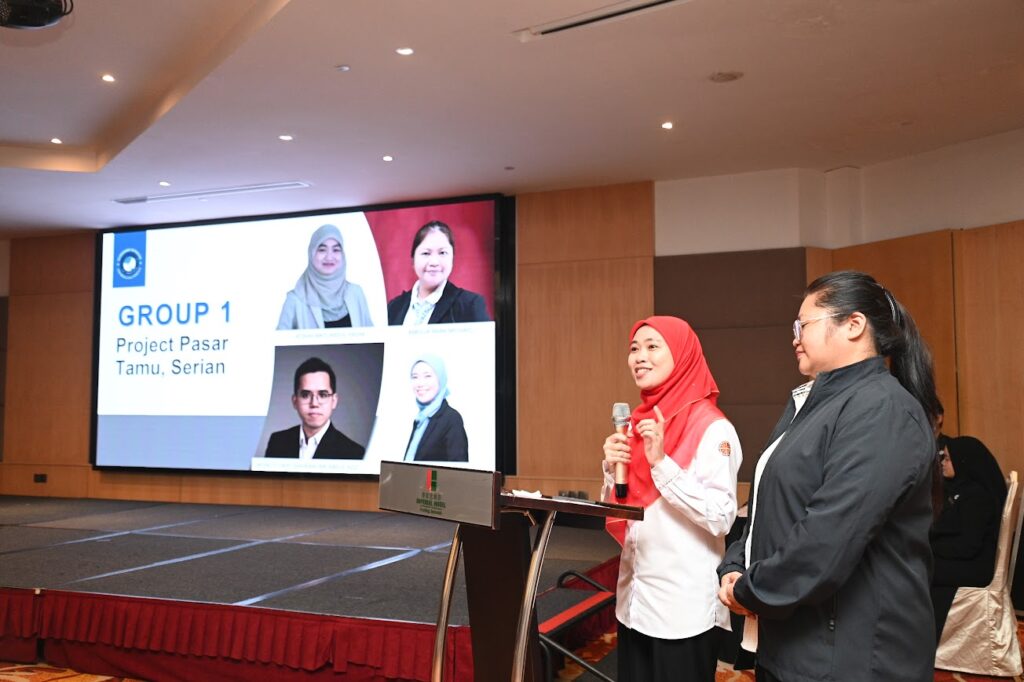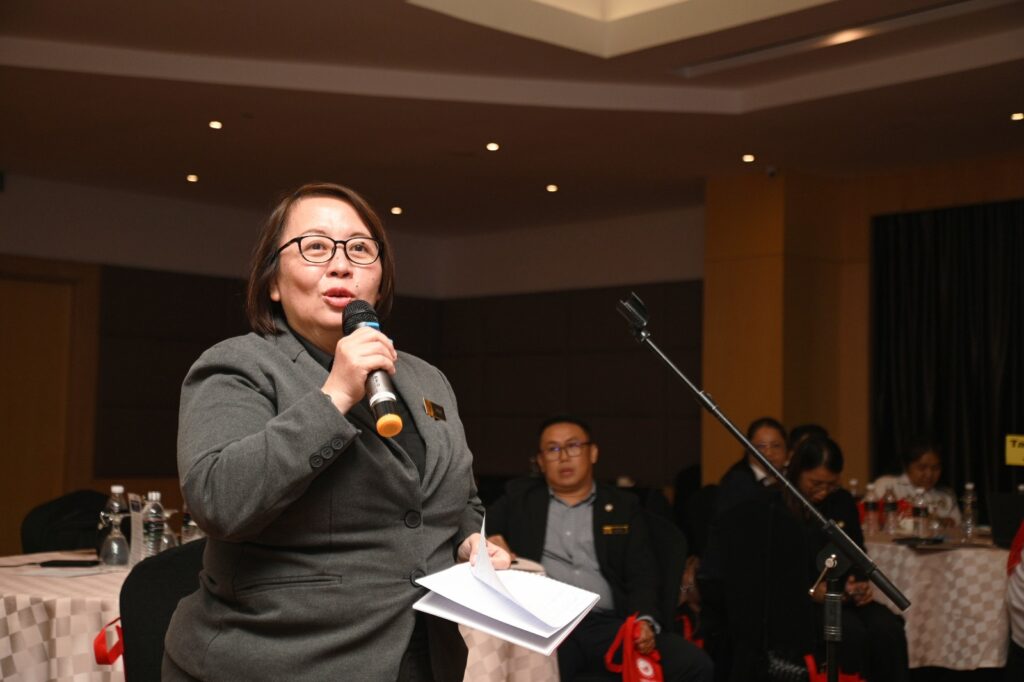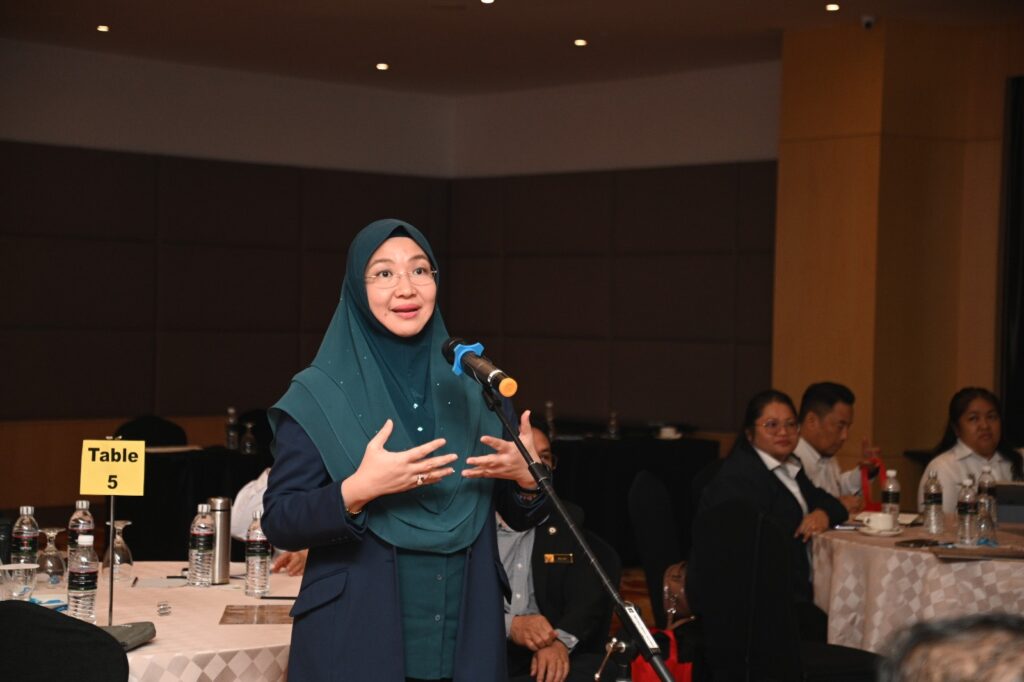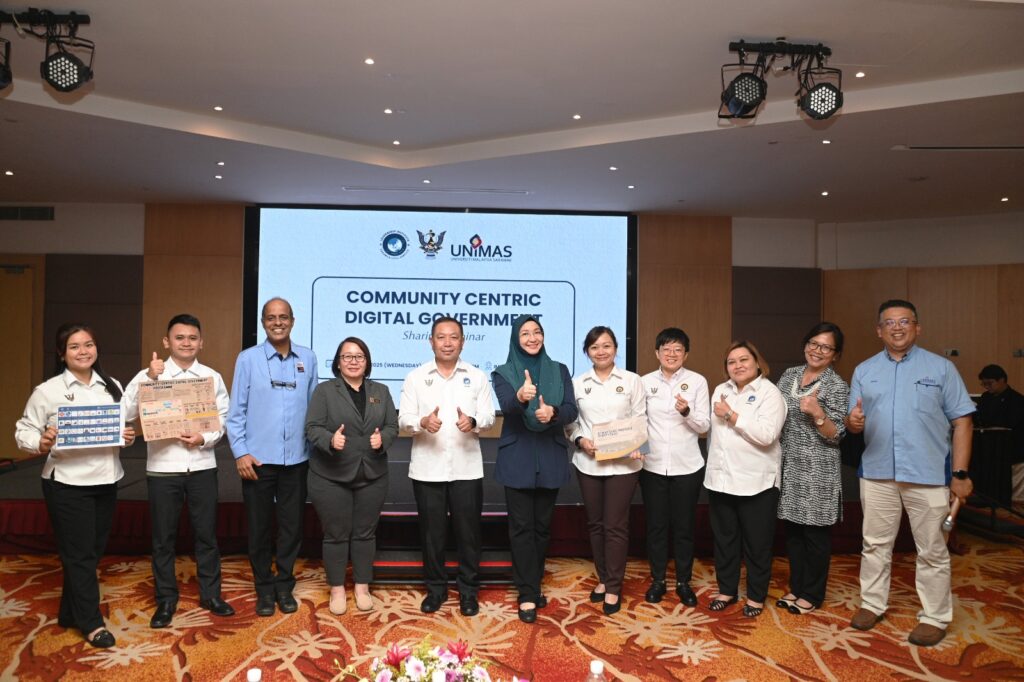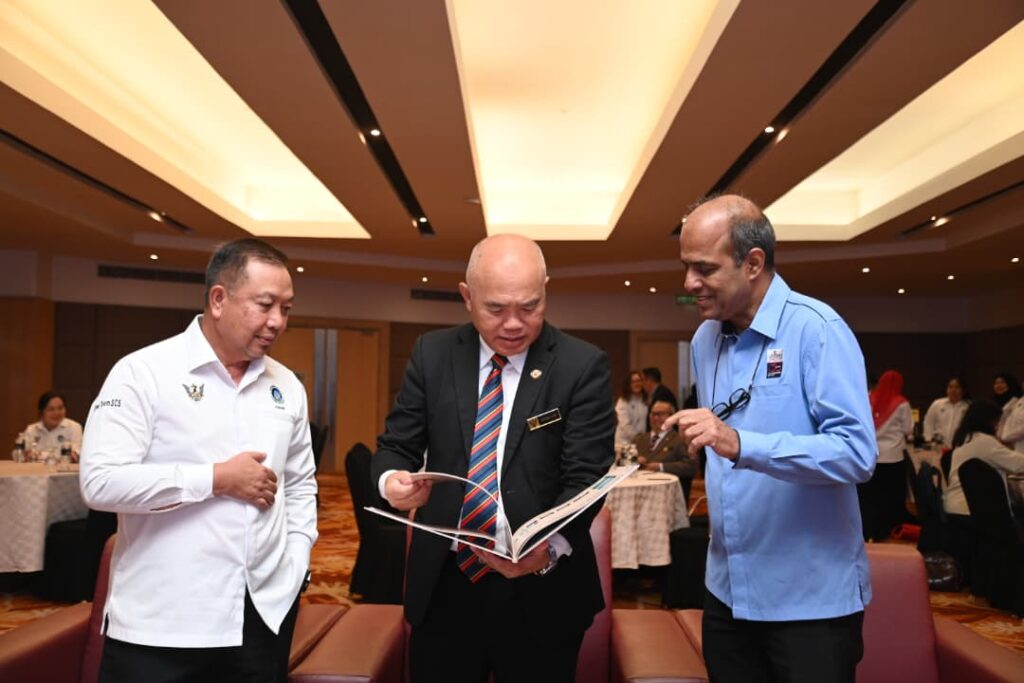
Kuching, 22 October 2025 — Universiti Malaysia Sarawak (UNIMAS), in collaboration with the Leadership Institute of the Sarawak Civil Service (LI SCS), successfully hosted the Sharing Seminar on the Post Community-Centric Digital Government (CCDG) Impact Study at the Imperial Hotel, Kuching.
The event, graced by YBhg. Datu Buckland Bangik Deputy State Secretary (Administration) and member of the LI Board of Directors, and YBhg. Datu Dr. Haji Azhar Bin Haji Ahmad, Chief Executive Officer of LI SCS, brought together officers from various state departments to showcase the transformation journey of Sarawak’s civil service through digital leadership and community engagement.
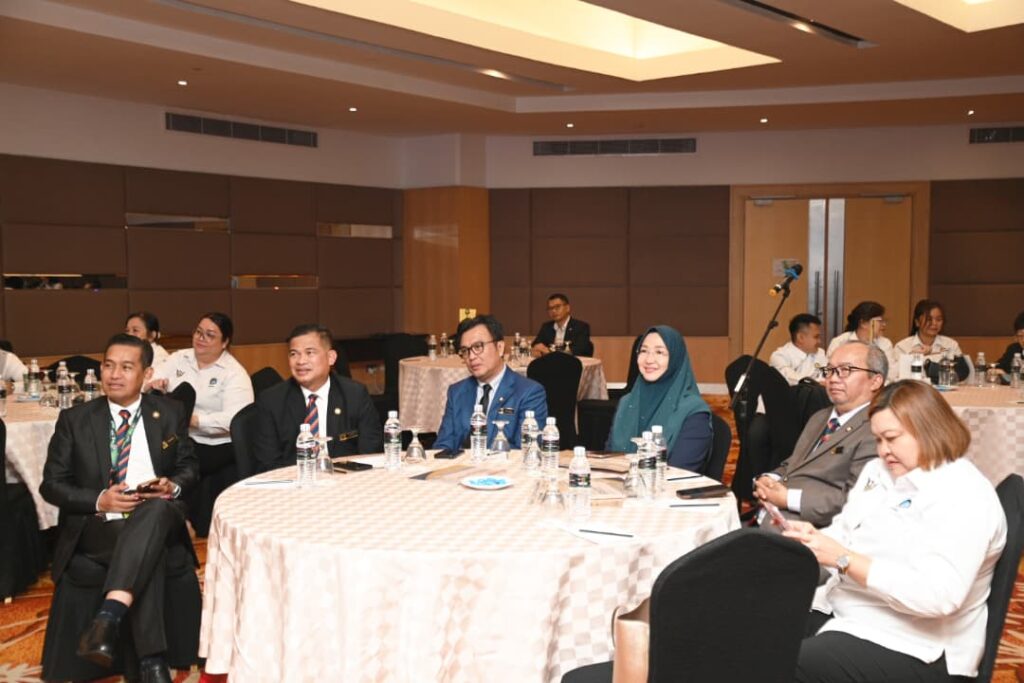
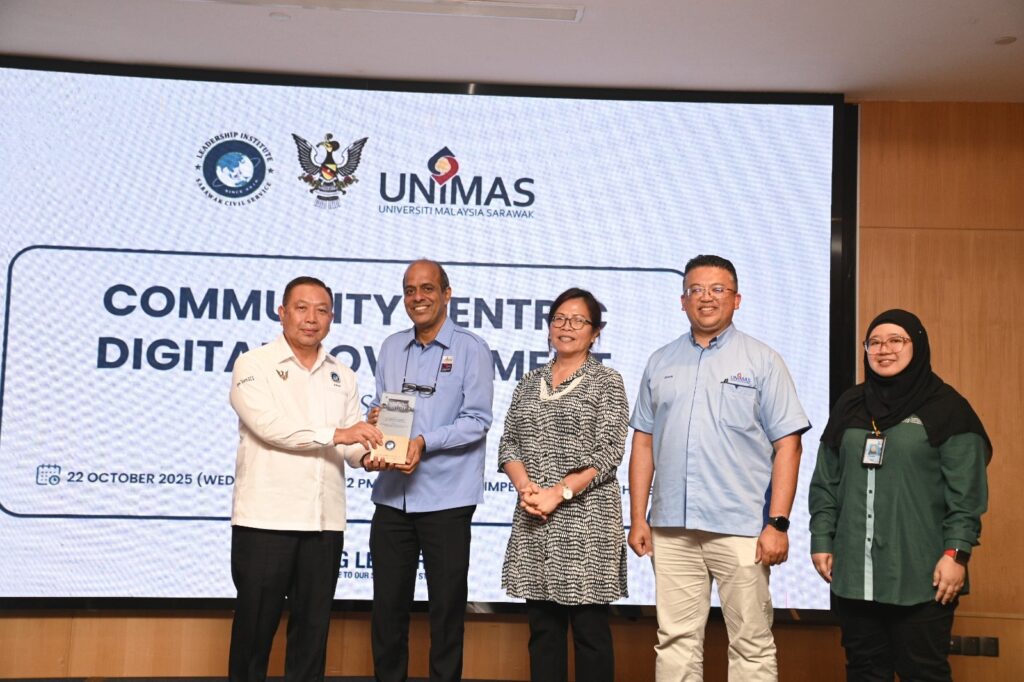
The CCDG Programme, jointly designed and implemented by UNIMAS and the Center of Applied Data Science (CADS), serves as a strategic initiative under the Post-COVID Development Strategy (PCDS) 2030 and the Sarawak Digital Economy Blueprint (SDEB 2030). Led by Prof. Dr. Narayanan N. Kulathu Ramaiyer of the Institute of Social Informatics and Technological Innovations (ISITI), Prof. Dr. Poline Bala of the Institute of Borneo Studies and Prof. Dr. Johari Abdullah of the Faculty of Computer Science and Information Technology the programme aims to transform civil servants into digital catalysts who bridge community needs with technology-driven governance.
Participants undergo a structured learning journey that combines experiential training, psychometric profiling, AI tool application, and the Gather–Assess–Learn–Monitor (GALM) framework. This holistic model develops officers’ competencies in data-driven governance, community engagement, and strategic digital leadership.
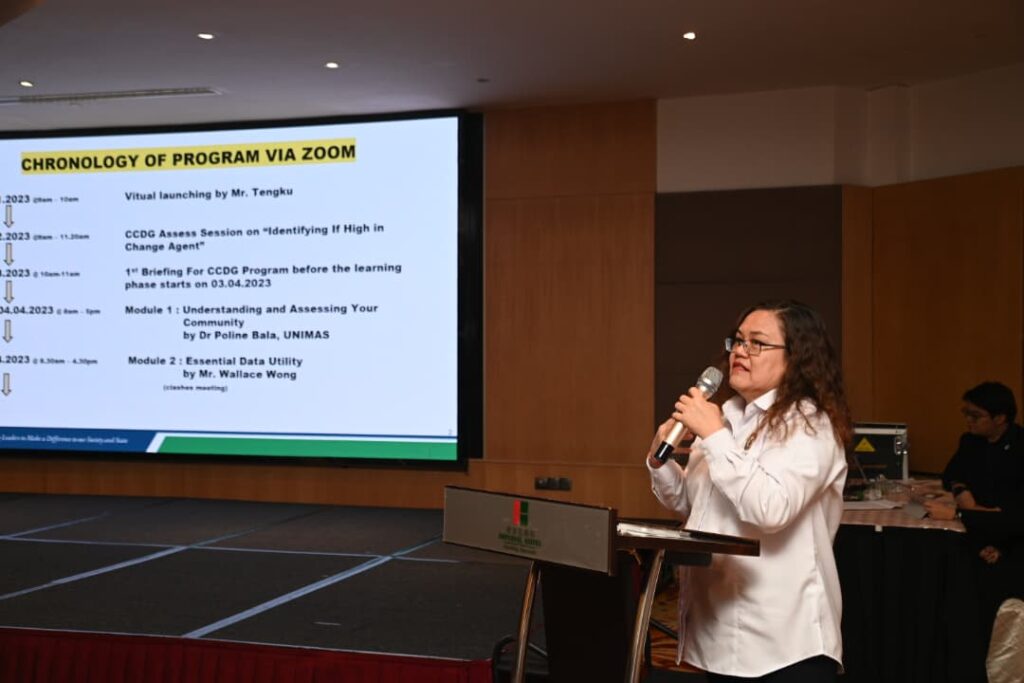
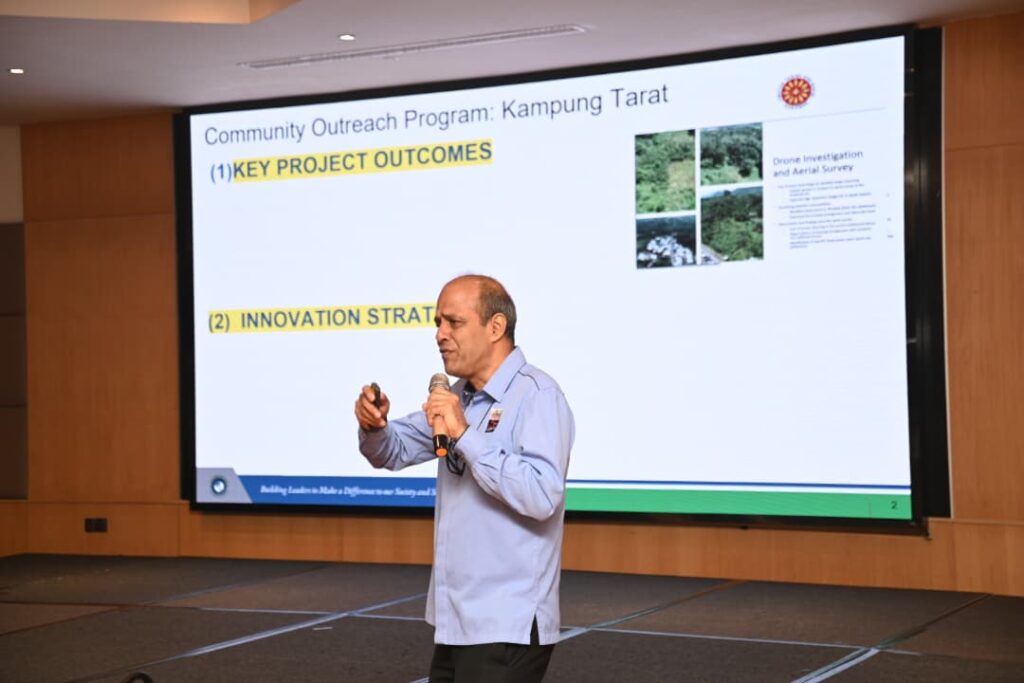
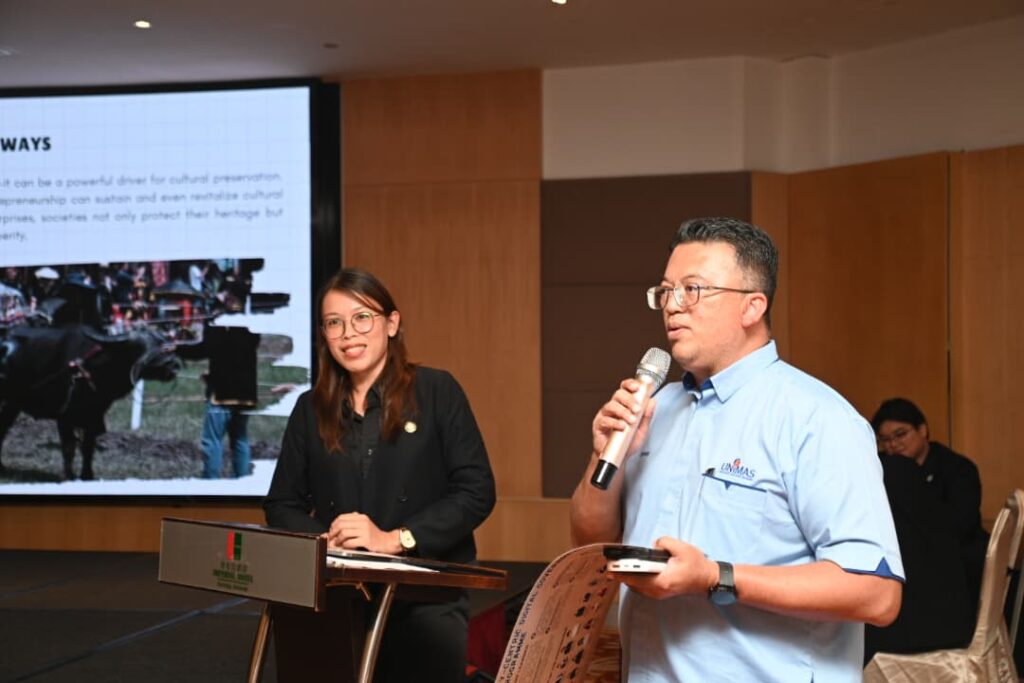
Community-Centric Impact: Stories from the Ground
During the seminar, officers presented six impactful community projects from across Sarawak, demonstrating how digital tools can address local challenges. These included:
• Pasar Tamu Serian – A digital marketplace prototype for local vendors.
• Kampung Sampun Tebun, Asajaya – Training in digital marketing for handicraft entrepreneurs.
• Kampung Tarat, Serian – Participatory land data collection using TRIZ innovation methods.
• Kampung Pandak, Limbang – Community engagement initiatives addressing youth and social issues.
• Kampung Tudan Phase 4 & 5, Miri – Digital literacy and connectivity outreach.
• Tempat Transit Gelandangan (TTG), Sibu – Collaboration on social inclusion and digital welfare for the homeless.
These projects highlight how CCDG participants have turned classroom learning into real-world community transformation, embodying the programme’s principle that “the greatest shift is not in the tools we use, but in the mindset we embrace.”
Post-Programme Insights and Findings
Findings from the Post CCDG Impact Study indicate measurable improvements in participants’ leadership maturity, problem-solving ability, and digital competency. Officers reported increased motivation, better alignment with state digital policies, and a renewed sense of purpose as “game changers” in the civil service.
The study also validated the GALM Pipeline’s effectiveness in fostering reflective practice, data-driven assessment, and continuous improvement, contributing to the larger goal of nurturing a community-centric, data-driven, and future-ready Sarawak Civil Service.
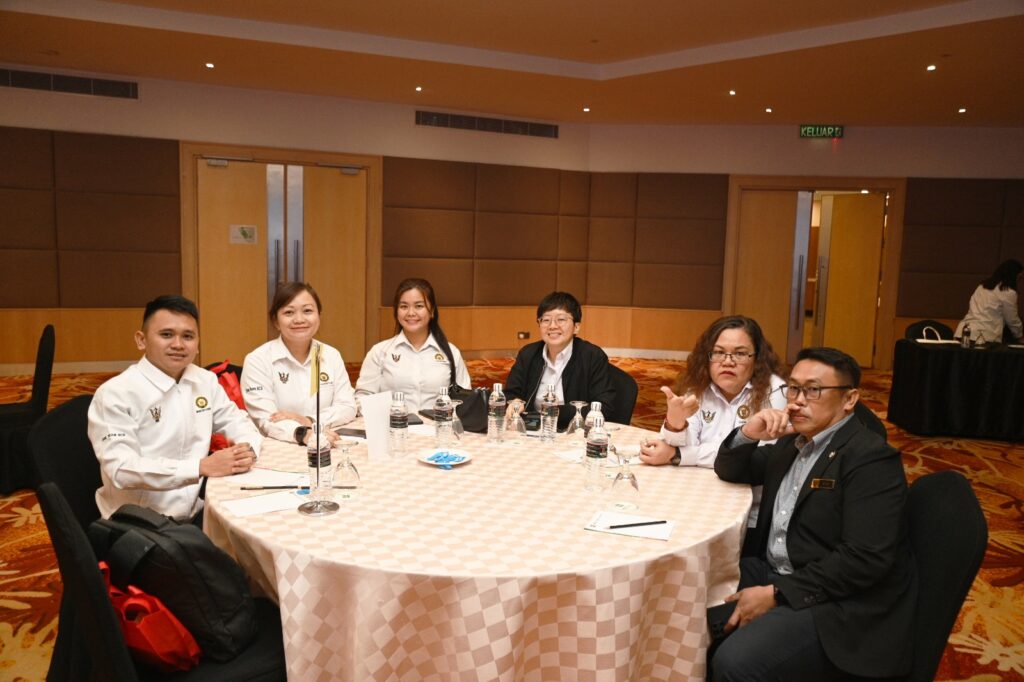
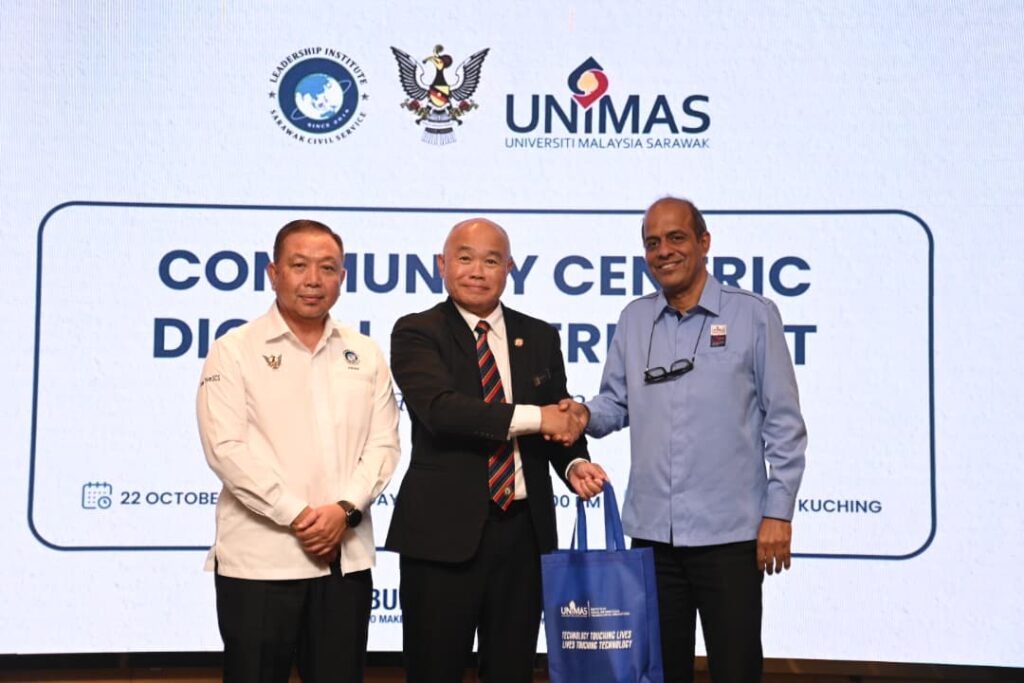
CCDG 2.0: The Way Forward
Building on the success of CCDG 1.0, Prof. Dr. Poline Bala unveiled CCDG 2.0 — a scalable, hybrid, and inclusive model anchored in the CAR³E Framework (Collect, Analyze, Reflect/Reskill/Reinforce, and Empower).
The next phase aims to:
• Expand participation to more officers across Sarawak.
• Introduce mentorship pathways for alumni.
• Strengthen supervisor-participant collaboration.
• Integrate CCDG insights into state-level digital governance strategies.
• Institutionalize annual refresher and energizer modules.
This forward-looking approach ensures continuous leadership development and sustainable community impact aligned with Sarawak’s vision of a thriving, inclusive digital economy.
A Continuing Partnership for Digital Excellence
The seminar concluded with appreciation to all facilitators, officers, and community partners who contributed to the success of CCDG. As UNIMAS and LI SCS prepare for the next phase, the programme stands as a testament to how academic–industry–government collaboration can effectively build capacity and translate digital transformation into meaningful community progress.
“The CCDG Programme empowers civil servants not just with digital skills, but with the courage to lead meaningful change in their communities,” said Prof. Dr. Narayanan.
Prepared by the CCDG Programme Team — Prof. Dr. Narayanan N. Kulathu Ramaiyer, Prof. Dr. Poline Bala of the Institute of Borneo Studies, Prof. Dr. Johari Abdullah of the Faculty of Computer Science & Information Technology, and Ms. Farina Osman (UNIMAS).
